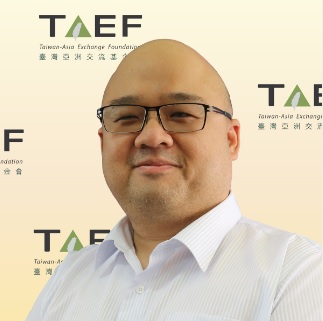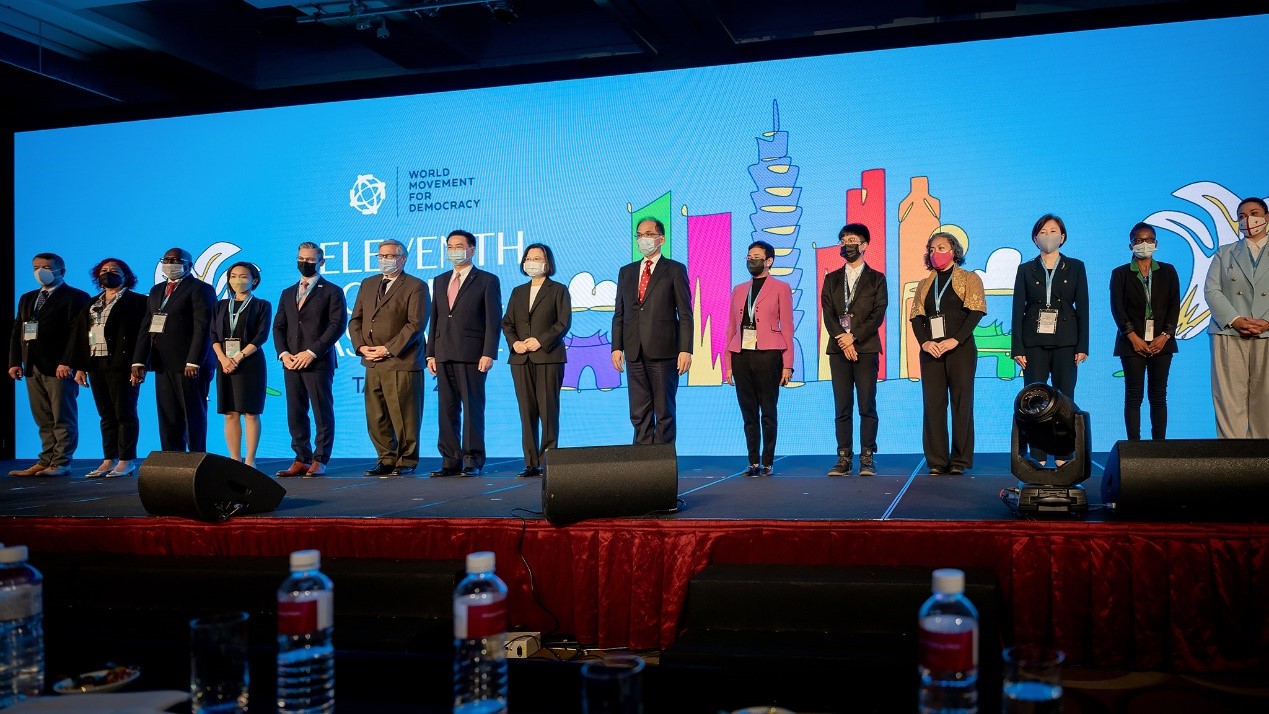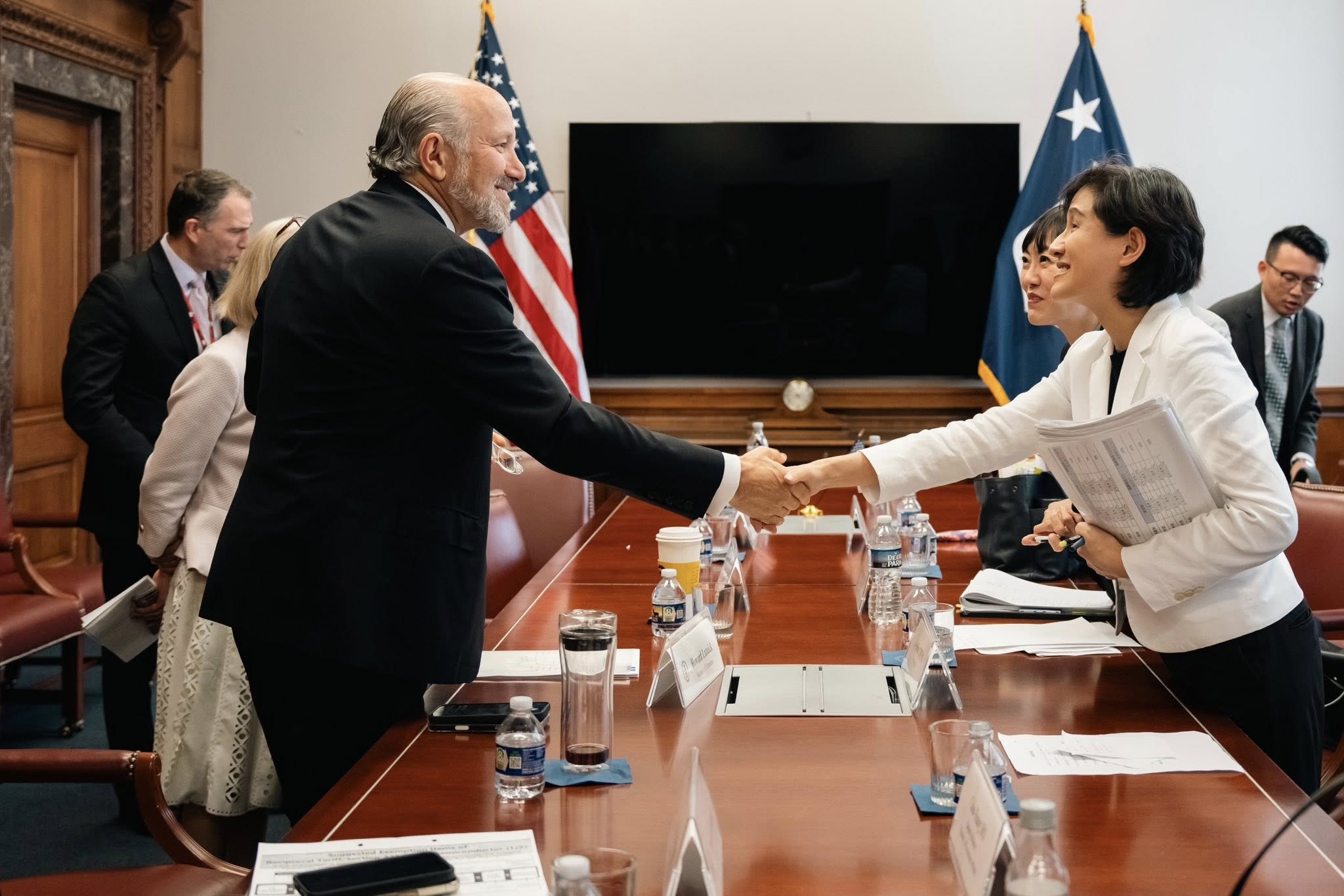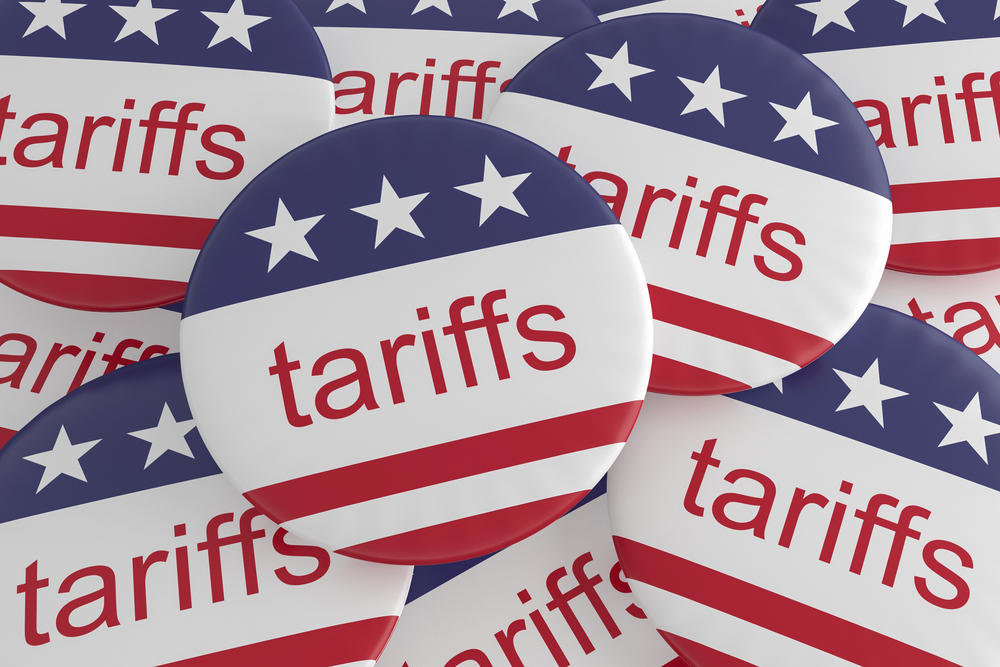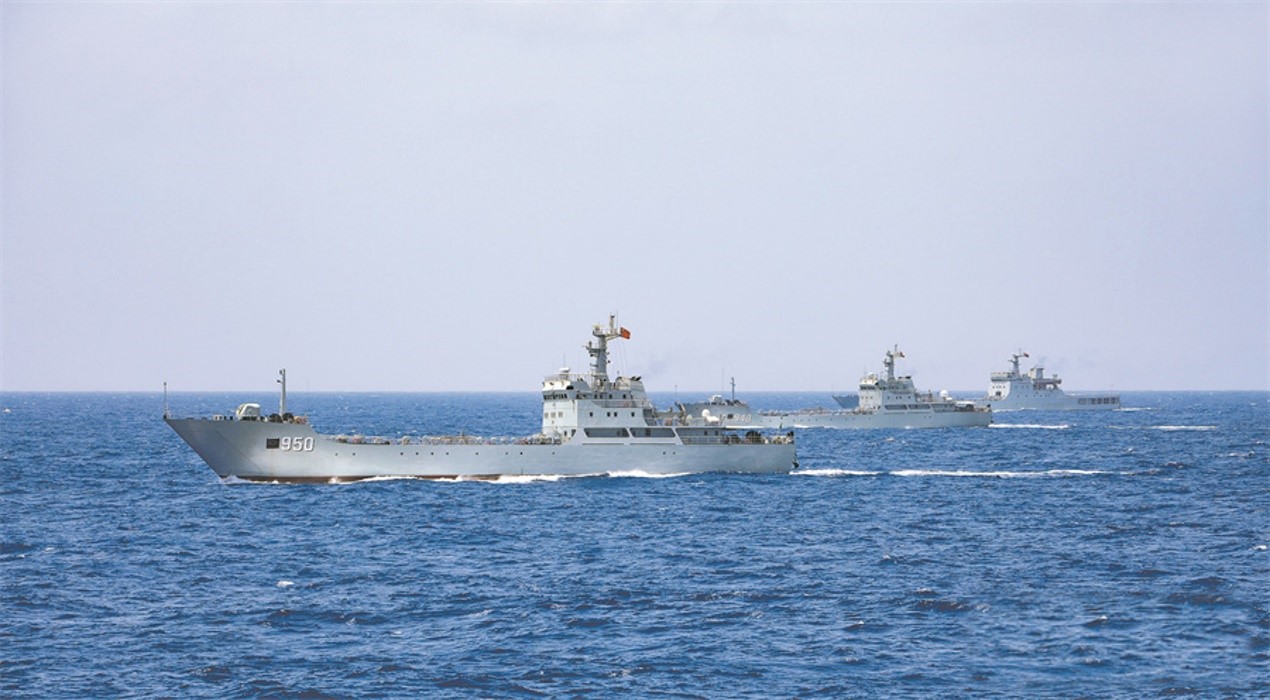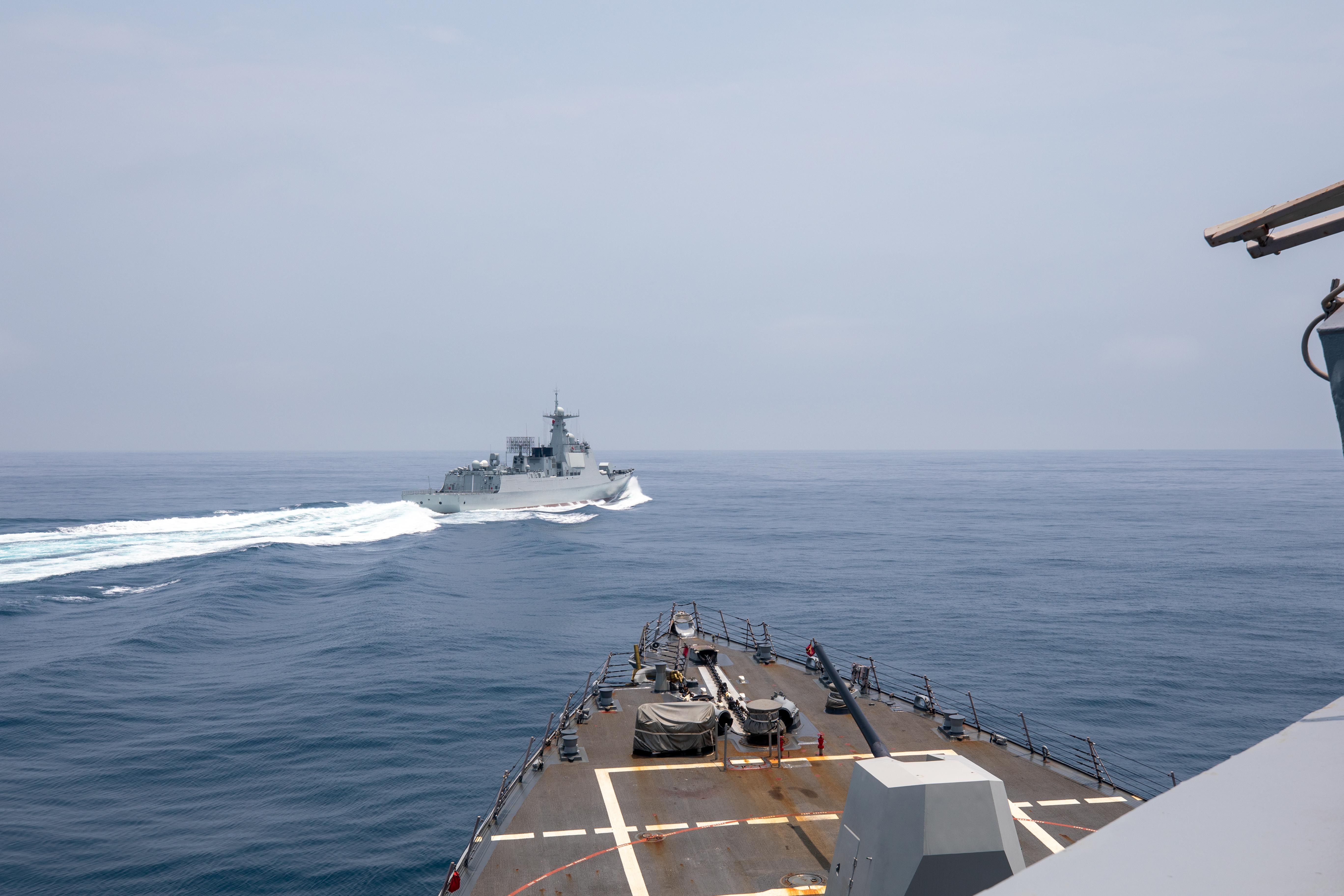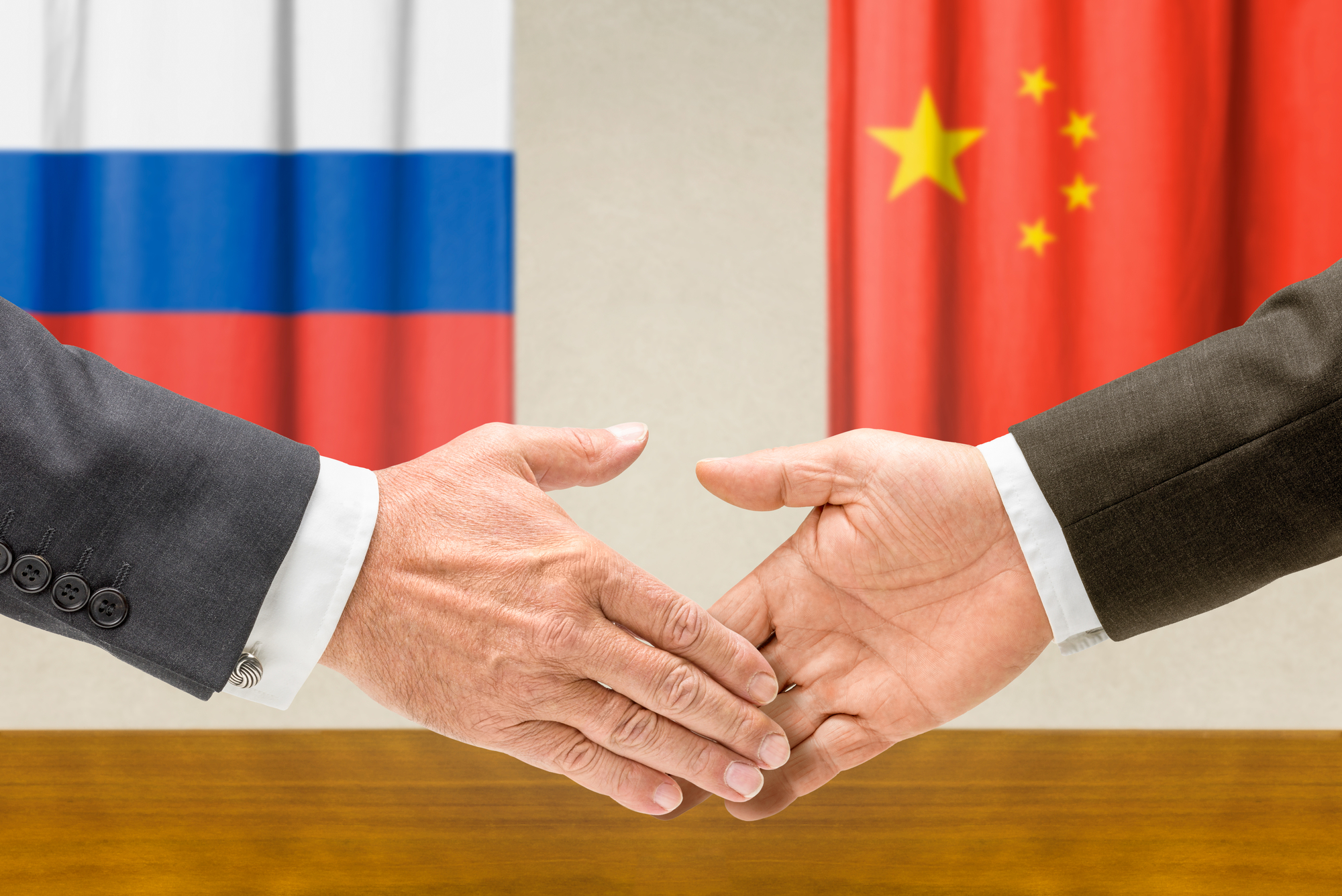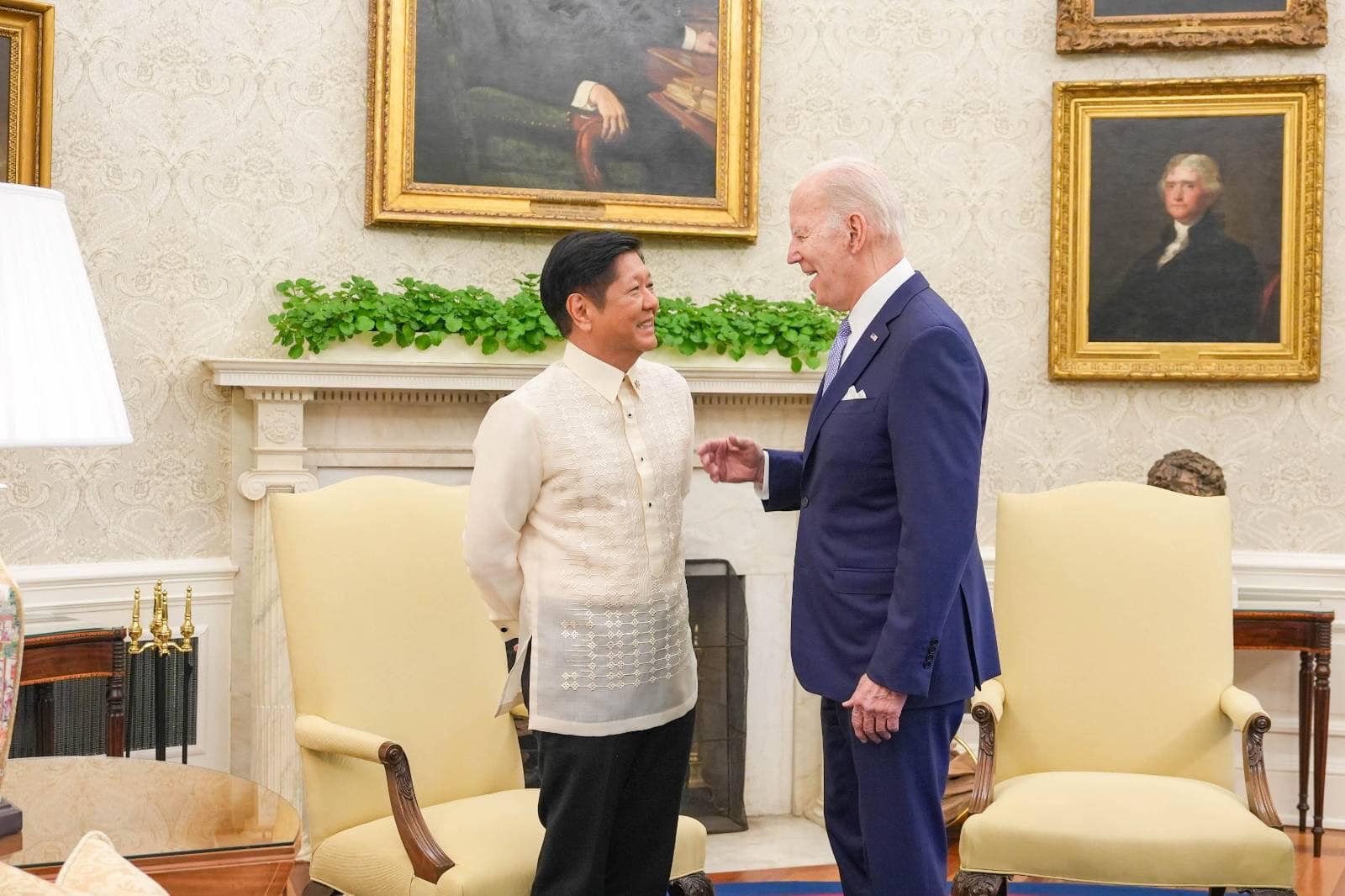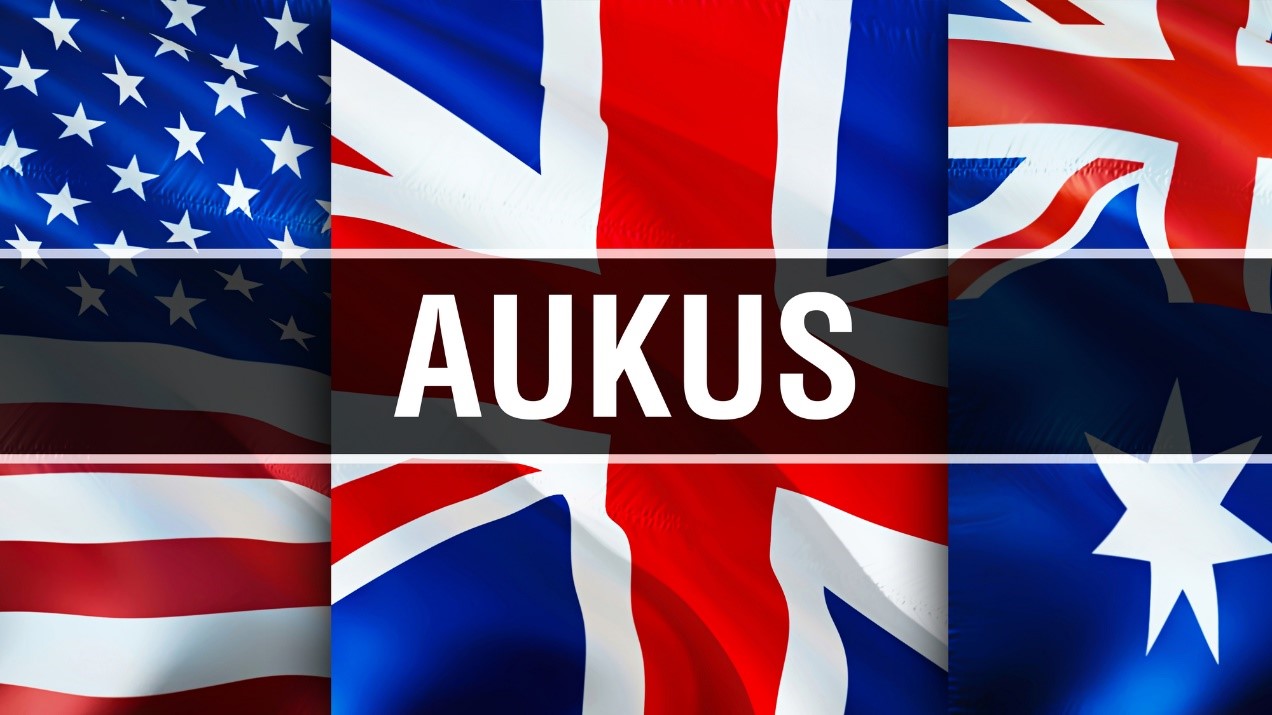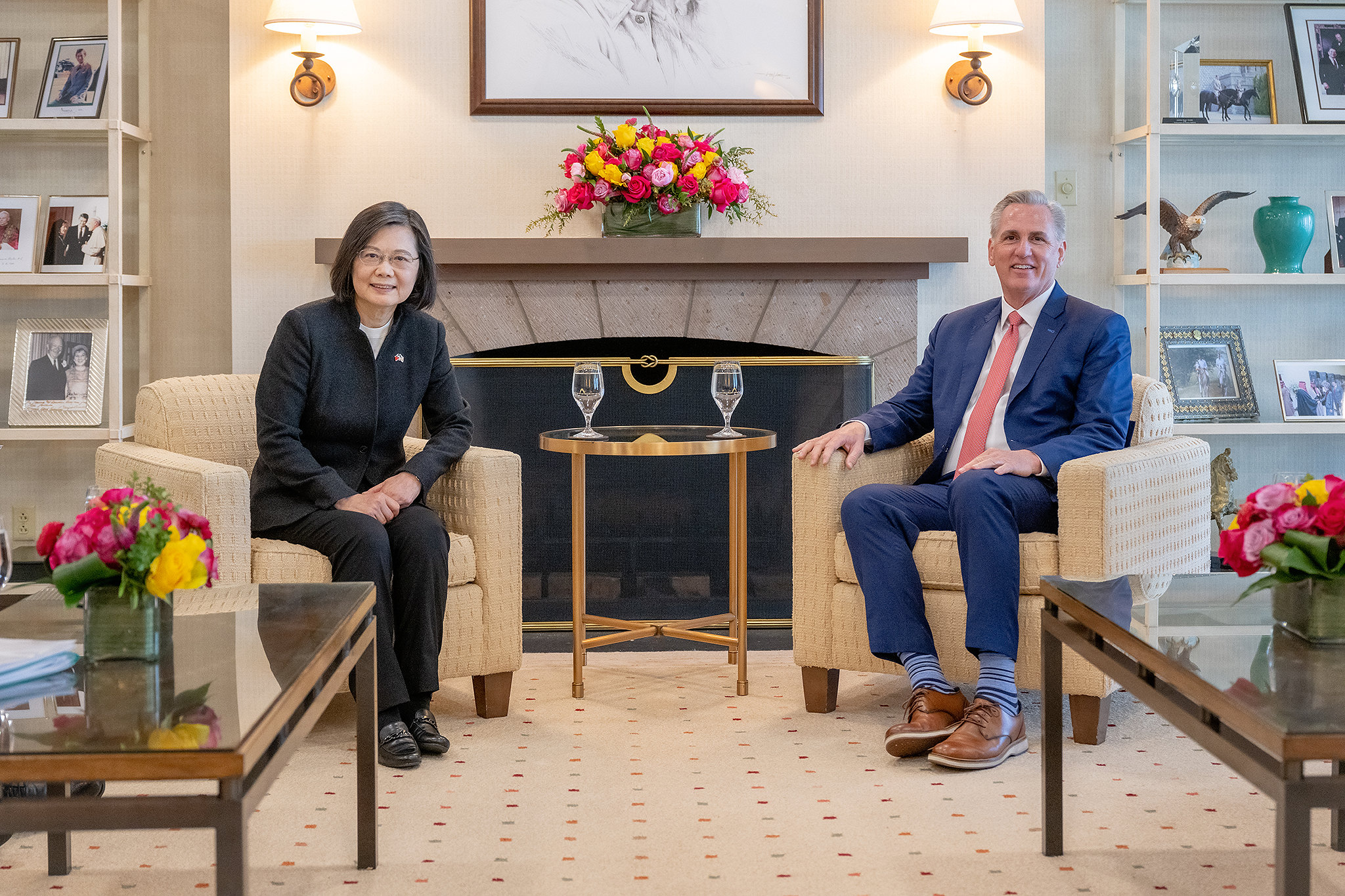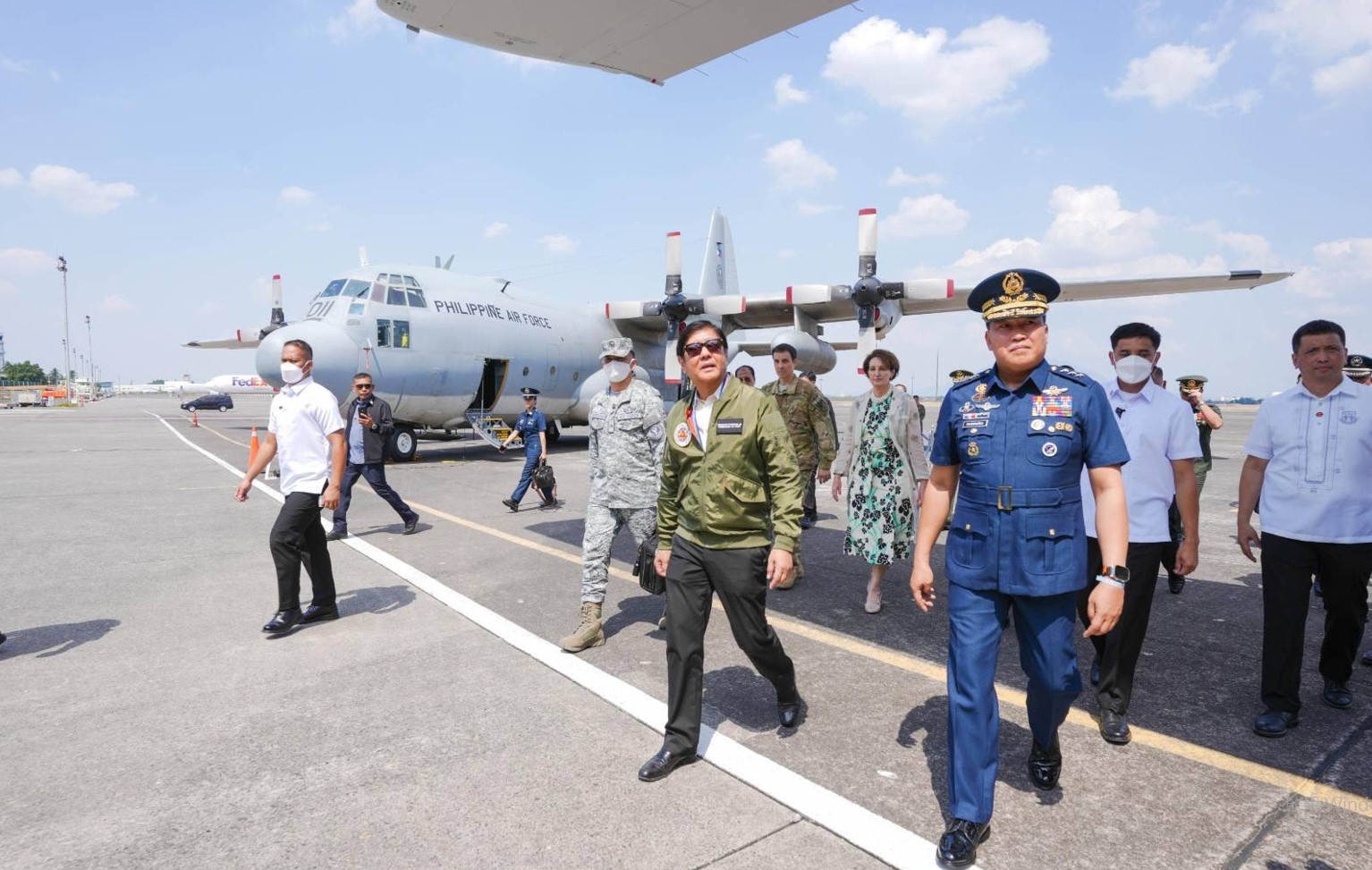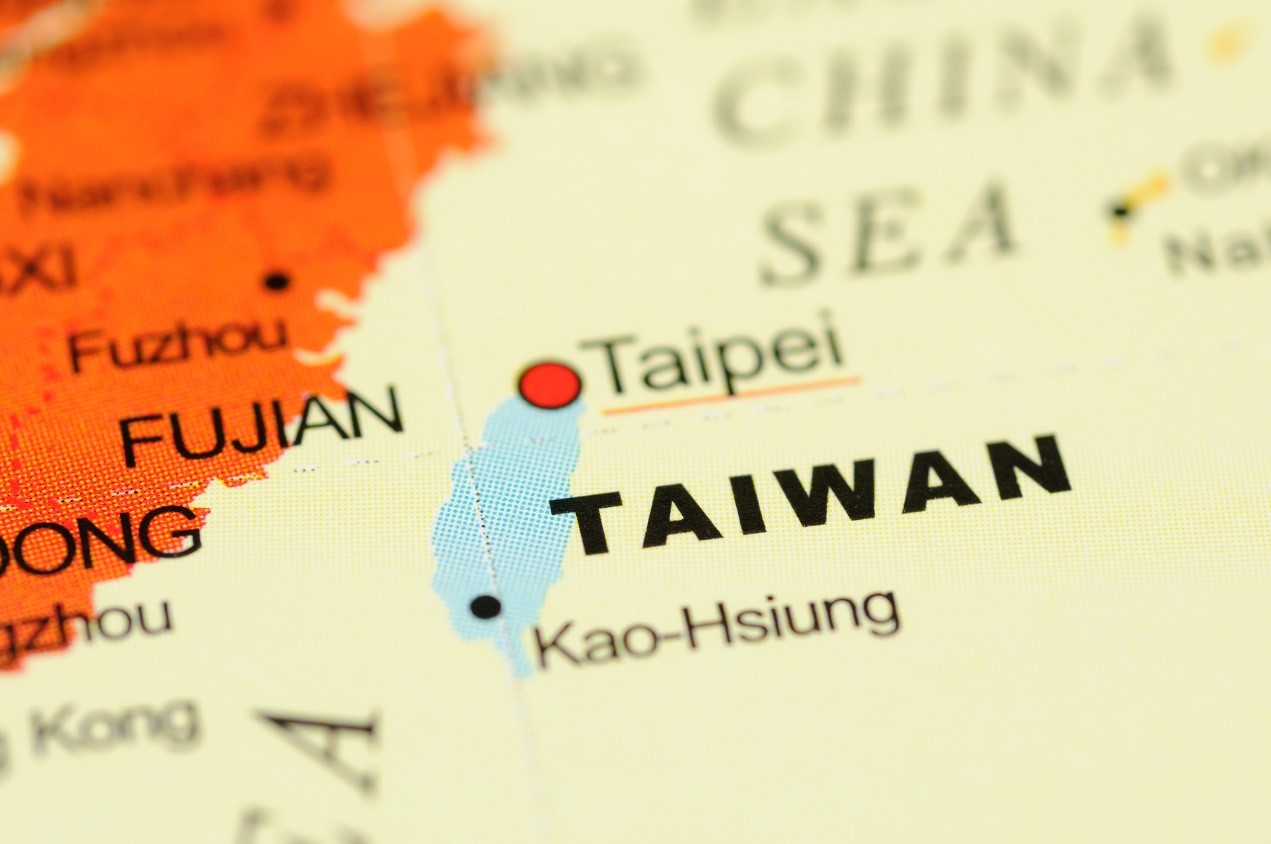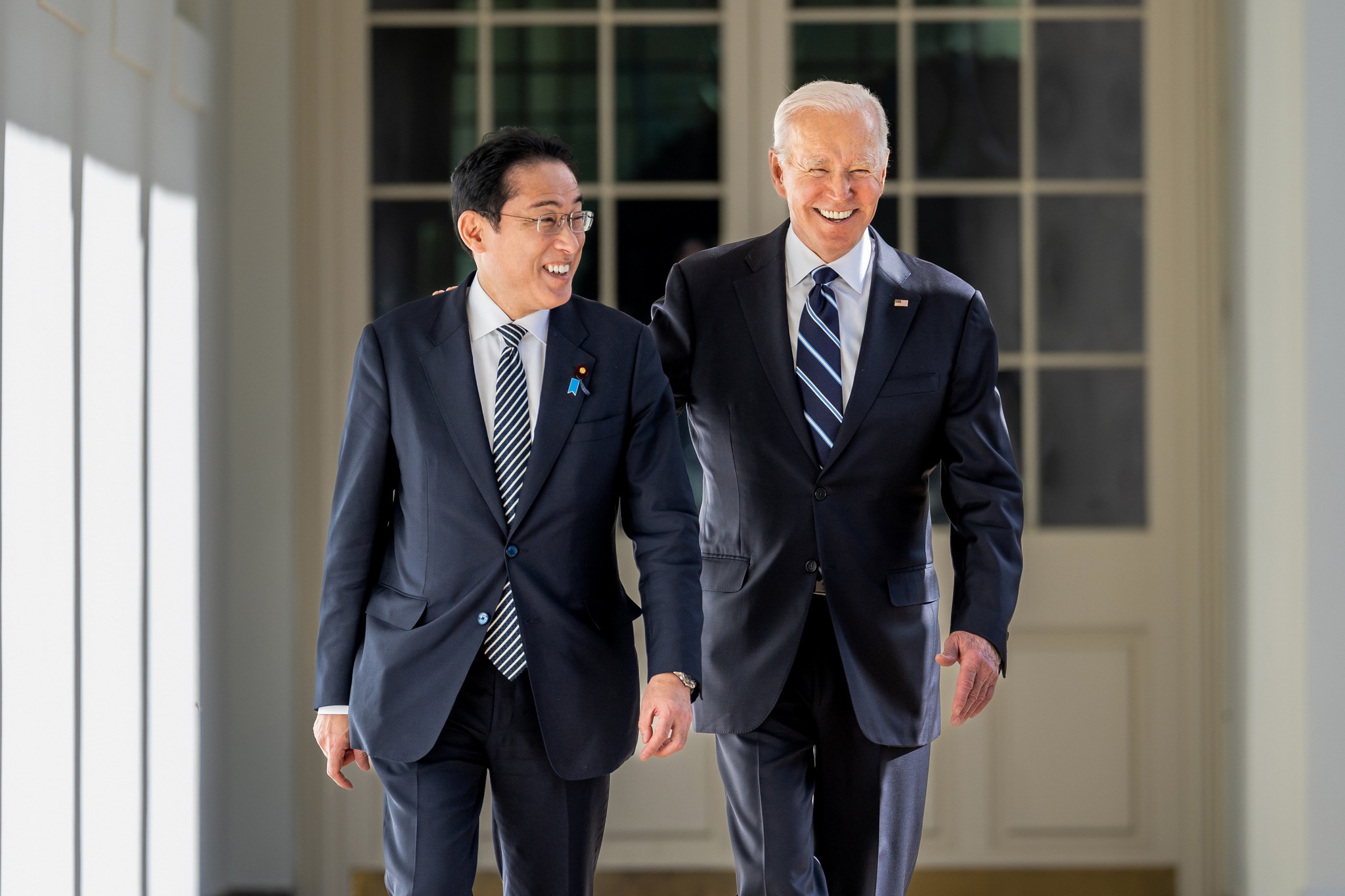The Strategic Implications of the World Movement for Democracy Assembly in Taiwan
In October, nearly 300 representatives from more than 70 countries gathered at the 11th Assembly of the World Movement for Democracy was held in Taipei to discuss joint efforts for democratic solidarity and global collaboration against authoritarian expansion, with the aim of making global democracy more resilient.
Picture source: Makoto Lin / Office of the President, October 25, 2022, Flickr, https://www.flickr.com/photos/presidentialoffice/52452732265/.
The Strategic Implications of the World Movement for Democracy Assembly
in Taiwan
Prospects & Perspectives No. 69
By Alan H. Yang
Taiwan has vowed to contribute to global democracy. In October, the 11th Assembly of the World Movement for Democracy (WMD) was held in Taipei, co-organized by the Taiwan Foundation for Democracy (TFD) and the U.S. National Endowment for Democracy (NED). Nearly 300 representatives from more than 70 countries gathered at the Assembly to discuss joint efforts for democratic solidarity and global collaboration against authoritarian expansion, with the aim of making global democracy more resilient.
Taiwan’s hosting of the WMD Assembly was of great significance. First of all, during the Covid pandemic, Taiwan used digital technology to facilitate democratic pandemic governance, which set an encouraging example for the international community and demonstrated the virtues of digital resilience.
Following U.S. House Speaker Nancy Pelosi’s visit to Taiwan to express support for Taiwan’s democracy and its people in August, the People’s Liberation Army (PLA) launched a series of live-fire exercises around Taiwan, which attracted global attention by underscoring that Taiwan is at the forefront of democracy and has to resist authoritarian aggression. The safety and survival of Taiwan also showcase its democratic resilience.
It is true that digital resilience and democratic resilience are the keys to Taiwan’s survival. During the WMD Assembly, Taiwan’s digital minister, Audrey Tang, reiterated that Taiwan is on the frontline of the democratic world against authoritarian aggression. In addition to holding the democratic front, Taiwan also strengthens the implementation of democracy through digital innovation and cross-sectoral partnerships among its people, while contributing to the making of a reliable supply chain for the world.
Democracy is not a slogan, but a concrete and sustainable value that may lead to collective actions and various forms of global collaboration. In recent years, global democracy has faced challenges caused by the expansion of authoritarianism. In this regard, democratic actions need to be upgraded to a concrete and resilient global democratic movement. A global democratic alliance is greatly needed. In December 2021, Taiwan was invited to participate in the Summit for Democracy organized by the U.S. State Department. In 2022, Taiwan hosted the WMD Assembly. From the Summit for Democracy to the WMD Assembly, this shows that global democratic partnerships, with the presence and contribution of Taiwan, are being strengthened against authoritarian expansion and aggression.
Taiwan’s leading role in participating in global democratic efforts is constantly enhanced. In 2021, besides taking part in the Summit for Democracy, Taiwan also initiated and organized the 2021 Open Parliament Forum (OPF) co-hosted by the Ministry of Foreign Affairs, the Legislative Yuan, and the Taiwan-Asia Exchange Foundation (TAEF) in partnership with the National Democratic Institute (NDI) of the United States. A number of 37 parliamentary leaders, key parliament members and experts from 21 countries gathered in Taipei to discuss open congress initiatives, digital democracy, and cooperation against authoritarianism. The WMD Assembly, under the theme “Claiming the Democratic Future: Unifying Voices for a New Frontier,” became even more prominent due to the military coercion and unilateral aggression by authoritarian China that Taiwan faced in August. Diplomacy based on democracy and universal values, with the key features of defending democracy, fighting against authoritarianism, and promoting human rights, serve as a link between Taiwan and the democratic family.
Supporting Ukraine also matters. Taiwan not only embraces but also contributed to the democratic solidarity through the WMD Assembly. Moreover, as the organizer, Taiwan took the opportunity to show its support for Ukraine. For example, side events organized by Taiwan’s MOFA, such as the “Taiwan-Ukraine Friendship Reception” at the Taipei Guest House, as well as the participation of Ukrainian and Lithuanian parliamentarians at the Assembly, were held. Foreign Minister Joseph Wu reasserted Taiwan’s determination to stand with Ukraine to safeguard peace, and announced that Taiwan would contribute US$56 million to work with like-minded partners in post-war reconstruction in Ukraine. A Ukrainian Parliamentary Friendship Group, which connects with the Taiwan Legislative Yuan, has also been set up. During the reception at the WMD Assembly, Taiwanese participants demonstrated their firm support for the Ukrainian people, and showcased their willingness to deepen the friendship between Taiwan and Ukraine.
Last, but not least, the WMD Assembly consolidated cross-sectoral and cross-country partnership through the participation of and dialogue between prominent INGOs (such as the Westminster Foundation for Democracy, WFD) and local NGOs in Taiwan (such as Citizen Congress Watch, CCW). New initiatives and networks among like-minded stakeholders launched during the Assembly contributed to follow-up activities for the years ahead that will further deepen the resilience of democratic family across the world.
Apart from holding the WMD Assembly, the following roadmap will help Taiwan promote global democratic collaboration:
Taiwan’s sustained participation in and endorsement of global democratic forums is imperative for the global democratic alliance. Hosting prominent events may shape a narrative of democratic resilience that includes Taiwan. The 2021 OPF initiated by Taiwan and the WMD Assembly held in Taiwan are both concrete practices in which Taiwan expresses its support for global democratic solidarity.
Advocating the concept of collective democratic defense as well as efforts to advance its practice should be reinvigorated. The discussion regarding democratic governance in recent years has focused on innovation, which is seen as democracy’s soft appeal. Nevertheless, the democratic narrative needs to be tough and focused on defending universal values and common interests. For any democracy that faces authoritarian aggression and military intimidation, like-minded partners and democratic allies should advocate the Democratic Defense Initiative (DDI) through a coalition of the willing so that democratic security of a specific country can be linked to regional peace and stability, through collective efforts that seek to strengthen security awareness among the democratic family, while translating into a structured collective defense to jointly resist authoritarian expansion and aggression.
The practice of DDI needs to call for joint efforts and collective action driven by cross-sectoral partnerships and cross-level coalition inclusive of international organizations, governments, parliaments, and civil society.
(Dr. Yang is Distinguished Professor, Graduate Institute of East Asian Studies, National Chengchi University, Taiwan.)

